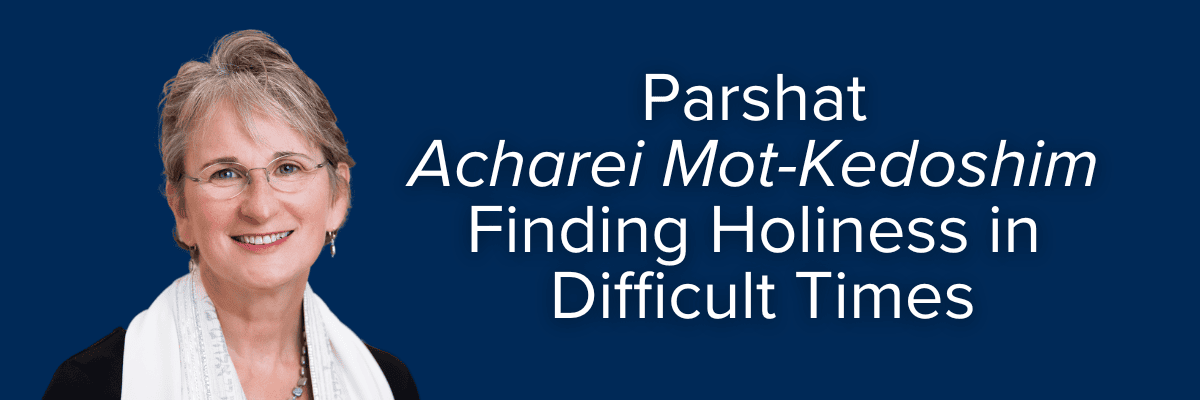This week is one of the few where we read two Torah portions over one Shabbat. In years that are not leap years, we double up on a number of Parshiot. Our next leap year will be in 5787 (2 years away) when each Shabbat will have a single Torah portion.
Although there is a practical reason why there are two portions this week, I often see that there may be a message for us to take away from the combination of themes. Consider this week with two very different stories. Acharei Mot, which means “after the death,” recalls the death of Nadav and Avihu, Aaron’s sons. Kedoshim, meaning “holiness,” is a long portion containing some of the most meaningful ethical laws. These include loving our neighbors, upright treatment of those on the fringe of society, a fair court system, allowing the poor to sustain themselves and more.
On Shabbat we will be challenged by the presence of both of these very different readings. One does not need to go any further than the names of these readings to find meaning. After Death-Holiness… This year – week in and week out – we have experienced profoundly troubling loss of life, as Aaron did. We hold so many tragic situations – in Israel, in Gaza, here in our USA. There are so many communal challenges that threaten life as we know it. Where do we go from here? Our tradition provides an answer. We must respond to tragedy and challenge by pursuing holiness; by daily bringing sanctity back into our personal lives. We are not allowed to sit in the dark, depressed, alone. We are instructed to return to the world and work to make it a better more righteous place.
This past week in an essay in the New York Times, David Brooks wrote about this very approach. Most of us are feeling challenged, distressed, and even depressed by the rapid and disruptive changes in our society, specifically in our government. While some applaud these changes, others see them as a threat to our understanding and vision of democracy and civil society. Both Brooks and our Torah portion come to the same conclusion. At a time when one is feeling disoriented by loss (of a person, a way of life or an ideal) we are encouraged to invest in that which connects us to actions and values that can lift us up. Speaking of a way to find meaning to sustain us, Brooks writes: “Judaism, for example, stands for piety, learning and strictness of conscience. Think of the words so highly valued in Jewish life: chesed (loving kindness), simcha (joy, especially communal joy), anavah (humility), tzedek (justice and charity), limud (study and learning) and kedushah (holiness). Those words lift us up to an entirely different moral realm.” Brooks suggests that the ongoing engagement with our values, and the traditions that hold those values, give us needed succor.
In the midst of challenging times, Acharei Mot-Kedoshim calls us to work harder to create a society that envisions and acts on that which is sacred. We carry our losses with us to move toward holiness, righteousness and justice. May we live up to the call from this week’s parasha.
Shabbat Shalom,
Rabbi Amy Schwartzman


